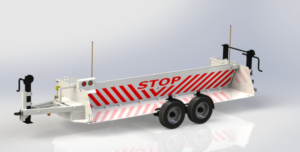Buying a boat is a major investment that should be considered carefully. Boats are one of the best ways to bring a little luxury into your life. Chance to have a quiet getaway out in the open waters with family or friends. Aside from fishing or having general fun, a boat can be a source of extra cash if you decide to rent it out when not using it.
Before committing to a purchase, there are a few things you need to iron out on buying a boat besides the price tag. Some of these include licensing, type and brand. This article is focused on a few things you ought to know before buying a boat.
The Type of Boat
There are several boats on the market, some of which are relatively compared to others. However, the price tag should not be a determining factor in this case. You need to be sure about the boat you want depending on your intended use; business or leisure. To help you in making a decision, you can ask yourself questions such as
- Will it be used to host guests?
- Will you use it for overnight events or activities?
- Are you looking to attach a trailer?
These are but a few questions that can help you determine the design, size, and even utility of the boat before making a purchase.
Understand Your Bating Licensing Procedures
Different states feature different laws and regulations when it comes to boating licensing. However, in all cases, you need to have one. These licenses are also termed boating safety and education certificates. You may be required to go through an online course to equip yourself with the necessary knowledge required to pass your tests. These courses are basically designed to provide you with a standardized education on boating safety, precautions, and laws needed to operate a watercraft successfully.
Sail or Motor
This basically a personal choice for any boat owner. You can either go for motor-powered versions or sails boats that use wind. This choice largely depends on your use of the boat.
Consider the Cost of Owning a Boat
The price of owning a boat doesn’t end with paying for the purchase. You need to look at the coast of storage, maintenance, and operation. This cost tends to vary depending on the type, sophistication, and size of the boat you’re looking to buy. In most cases, the smaller versions are cheaper to own with an even smaller upfront price, and some may even come with a trailer, this way, you don’t have to pay to keep it at the marina.
Inspect the Boat
Don’t just take the salesperson for their word. Once you see a model that appeals to you, climb on board and conduct a thorough inspection. Check inside the hatch to see if the components have an impressive finish, just like the exterior. Make sure to check and test the electronic installations, the engine, and other systems. During your inspections, you need to look at the components used; this way, you can determine the parts’ quality. This can come in handy when purchasing spare parts. For example, if the boat is fitted with Yamaha outboard parts, you are assured of getting affordable and quality parts.
Time
This is an important part when making your decision. You need to gauge the amount of time you will be spending on the boat. Boaters looking to spend at least a few days a month or even in a few months, it may be worth buying one. However, it would be wise to just rent one for those who stay up to years before hitting the waters. This is mainly because of the maintenance cost and rate of depreciation.
Financing
There are various options when it comes to financing your boat. You can decide to pay fully in cash, or you can think of a financing option. Keep in mind that marine lenders have varied criteria when it comes to financing boats. However, most of them focus on the value and age of the boat, with some requiring you to pay up to 20% of the total price upfront. Check your income to be sure you can comfortably sustain the financing costs.
Insurance
Regardless of your financing option, you still need to have insurance for your vessel. It is best to go for firms specializing in marine insurance. Go over several options comparing rates and policies to find the best choice for your needs. Keep in mind that your boat’s value, size, and age play an important part in determining the number of premiums you pay.
Take time to go over your needs, budget, and general use for the boats. These are probably the best guiding factors in making an informed decision before buying a boat.

